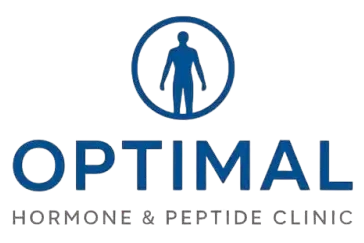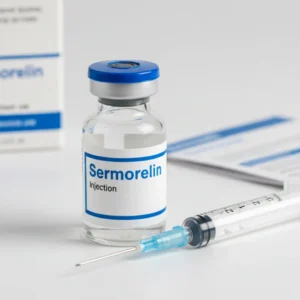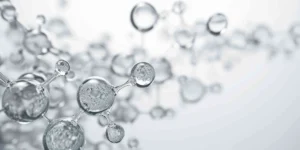Overview
You might need Testosterone Replacement Therapy (TRT) if you notice:
- Low sex drive or reduced interest in intimacy
- Trouble getting or keeping erections
- Constant tiredness, even after enough sleep
- Mood swings, irritability, or feelings of sadness
- Loss of muscle mass or strength
- Increased belly fat or weight gain
- Trouble focusing or remembering things
- Thinning hair or hair loss
- Weaker bones or frequent aches
Introdcution
Testosterone is primarily a male sex hormone and is responsible for a variety of functions in the body. Some of the main functions of testosterone include libido, sperm production, increased muscle mass, and increased focus and energy.
However, testosterone levels begin to decline with age. Besides, testosterone levels can also be decreased due to other reasons such as depression, anxiety, obesity, lack of exercise, and excessive use of alcohol and drugs.
Some of the symptoms associated with low testosterone are low energy, reduced sex drive, depression, loss of muscle mass or strength, mood swings, and irritability.
If you notice the above symptoms, it may indicate that you have low testosterone, and it is time for testosterone replacement therapy. However, it is important to note that always consult a qualified medical doctor for help and guidance.
Ready to Start Testosterone Replacement Therapy? Contact Us Now!
Table of Contents
Symptoms of Low Testosterone in Men
Some of the symptoms associated with low testosterone levels in men, based on research data, include low sex drive, erectile dysfunction, fatigue, mood changes, and loss of muscle mass:
1. Low Sex Drive
Men with low testosterone often feel less interested in sexual activity. This is one of the most common signs and can affect relationships. It may also reduce thoughts or fantasies related to sex.
2. Erectile Dysfunction
Testosterone helps trigger and maintain erections. When levels drop, it becomes harder to get or keep an erection. This can happen even when a man is mentally interested in sex.
3. Fatigue
Low testosterone can cause constant tiredness. Even after a full night of sleep, men may still feel drained. This type of fatigue does not always improve with rest.
4. Mood Changes
Hormone levels affect mood and emotions. Men with low testosterone may feel sad, angry, or frustrated more often. Some may even develop symptoms of depression.
4. Loss of Muscle Mass
Testosterone plays a key role in building and maintaining muscle. When levels are low, men may notice weaker muscles or less tone. Exercise may not give the same results as before.
5. Increased Body Fat
Men may gain weight more easily, especially around the belly. Low testosterone slows down the body’s metabolism. It can also lead to changes in fat distribution.
6. Reduced Bone Density
Testosterone keeps bones strong and healthy. Low levels can make bones thin and weak over time. This raises the risk of fractures, especially in older men.
7. Hair Loss
Testosterone supports the growth of body and facial hair. Men may notice hair thinning or bald spots. Some even lose chest or leg hair that they had for years.
8. Poor Focus
Low testosterone can affect how clearly a man thinks. It may become harder to focus, make decisions, or remember things. Mental sharpness can feel noticeably dull.
9. Infertility
Testosterone helps produce healthy sperm. When levels are too low, sperm count can drop. This can make it more difficult for a man to have children.
If you are facing these symptoms, you should consult a urologist for testosterone replacement therapy.
What Causes Low Testosterone in Men?
Causes of low testosterone in men include aging, obesity, poor diet, lack of exercise, and stress:
1. Aging
One of the most prominent causes of low testosterone levels is aging. Testosterone levels naturally drop as men grow older. Most men start to see a gradual decline after the age of 30. This is a normal part of aging.
2. Obesity
Excess body fat, especially around the belly, lowers testosterone levels. Fat cells can convert testosterone into estrogen. This makes the hormone balance even worse.
3. Poor Diet
Similarly, a diet low in protein, healthy fats, and key nutrients like zinc can harm testosterone production. Junk food and sugary snacks can also affect hormone levels.
4. Lack of Exercise
Lack of exercise can also lead to low testosterone levels. Staying inactive can lead to weight gain and reduced testosterone. Regular strength training helps increase hormone levels. Even walking and basic movement help support better health.
5. Stress
High stress raises the body’s cortisol levels. Cortisol blocks testosterone and harms overall hormone function. Long-term stress can cause serious hormone imbalances.
6. Sleep Problems
Sleep is important for hormone production. Men who sleep less than 6 hours often have lower testosterone. Poor sleep affects the body’s ability to make hormones properly.
7. Alcohol and Drug Use
Drinking too much alcohol or using certain drugs harms hormone production. It can damage the glands that make testosterone. Over time, this leads to lower levels.
8. Medical Conditions
Some health issues, like diabetes or thyroid problems, can lower testosterone. Injuries to the testicles or brain tumors that affect the pituitary gland can also be a cause. Medical treatment may be needed in such cases.
9. Medications
Certain medicines, such as opioids or steroids, can reduce testosterone levels. These drugs may interfere with how the body produces or uses hormones. Always talk to a doctor about side effects.
10. Hormonal Disorders
Some men have problems with the glands that control hormones. This may include issues with the pituitary gland or hypothalamus. These problems can lead to low testosterone from an early age.
How Testosterone Replacement Therapy Helps with Low Testosterone?
Testosterone Replacement Therapy (TRT) helps bring your hormone levels back to normal. It replaces the testosterone your body no longer makes in enough amounts.
1. Boosts Energy
Many men feel more active and less tired after starting TRT. It can improve your overall energy throughout the day.
2. Improves Sex Drive
TRT often increases interest in sex. It also helps with getting and keeping erections.
3. Builds Muscle and Strength
Testosterone supports muscle growth. With TRT, workouts may feel more effective, and you may notice stronger muscles.
4. Reduces Body Fat
Some men lose fat more easily with balanced hormone levels. TRT helps the body burn fat better.
5. Lifts Mood
Low testosterone can cause sadness or anger. TRT may improve mood and make you feel more emotionally stable.
6. Sharpens Focus
Men often feel mentally clearer. TRT can help improve memory, focus, and mental sharpness.
7. Supports Bone Health
Testosterone helps keep bones strong. TRT may lower the risk of fractures as you age.
Testosterone replacement therapy works best when paired with healthy habits like a good diet, exercise, and proper sleep. Always talk to a doctor to see if it is right for you.
How Quickly Will Testosterone Replacement Therapy Work?
Testosterone replacement therapy is not a magic solution to low testosterone levels. Testosterone Replacement Therapy (TRT) is a process that works slowly.
In the first few weeks of your testosterone replacement therapy, you may notice a better mood, clearer thinking, and more energy. In addition, your sleep may also improve. And by the end of the first month, your sex drive may increase, and erections may become stronger.
Moreover, in two to three months, muscle strength often improves, and you may also feel more focused and motivated. After three to six months, body fat may decrease, and muscle mass becomes more visible. Bone health also gets stronger over time.
It is important to note that full results can take several months. The TRT progress depends on your age, health, and lifestyle. Regular check-ups help track your improvement.
How does a man feel when his testosterone is low?
A man with low testosterone often feels tired, irritable, less motivated and experiences a reduced sex drive.
Does not ejaculating for 7 days increase testosterone?
No, not ejaculating for seven days does not significantly increase testosterone levels; studies show only minor, temporary changes that don’t affect overall hormone balance.
What drink boosts testosterone?
Drinks like pomegranate juice, ginger tea, and fortified milk can help support healthy testosterone levels naturally.
Key Takeaways
- Low testosterone can cause tiredness, low sex drive, mood swings, and muscle loss.
- Testosterone Replacement Therapy (TRT) helps restore normal hormone levels.
- TRT can improve energy, mood, focus, and strength.
- Healthy habits like proper sleep, exercise, and good nutrition support testosterone balance.
- Always consult a qualified doctor before starting TRT.
Final Thoughts
Low testosterone can make you feel tired, sad, weak, and less interested in sex. It can affect your body, mind, and daily life. The good news is that help is available. Testosterone Replacement Therapy (TRT) can bring your hormone levels back to normal and improve how you feel.
It takes time to see full results, but many men start feeling better in just a few weeks. If you notice signs of low testosterone, talk to a doctor and get the right help.
Ready To Start TRT Therapy? APPLY NOW
Safety and Compliance
At Optimal HRT, every Testosterone Replacement Therapy (TRT) plan is personalized and prescribed only after a full medical evaluation and lab testing. Our treatments follow strict FDA-approved guidelines to ensure your safety and effectiveness. All medications are sourced from licensed U.S. pharmacies, and your care is monitored by experienced medical professionals. Your privacy and health data are fully protected under HIPAA compliance throughout your treatment journey.







